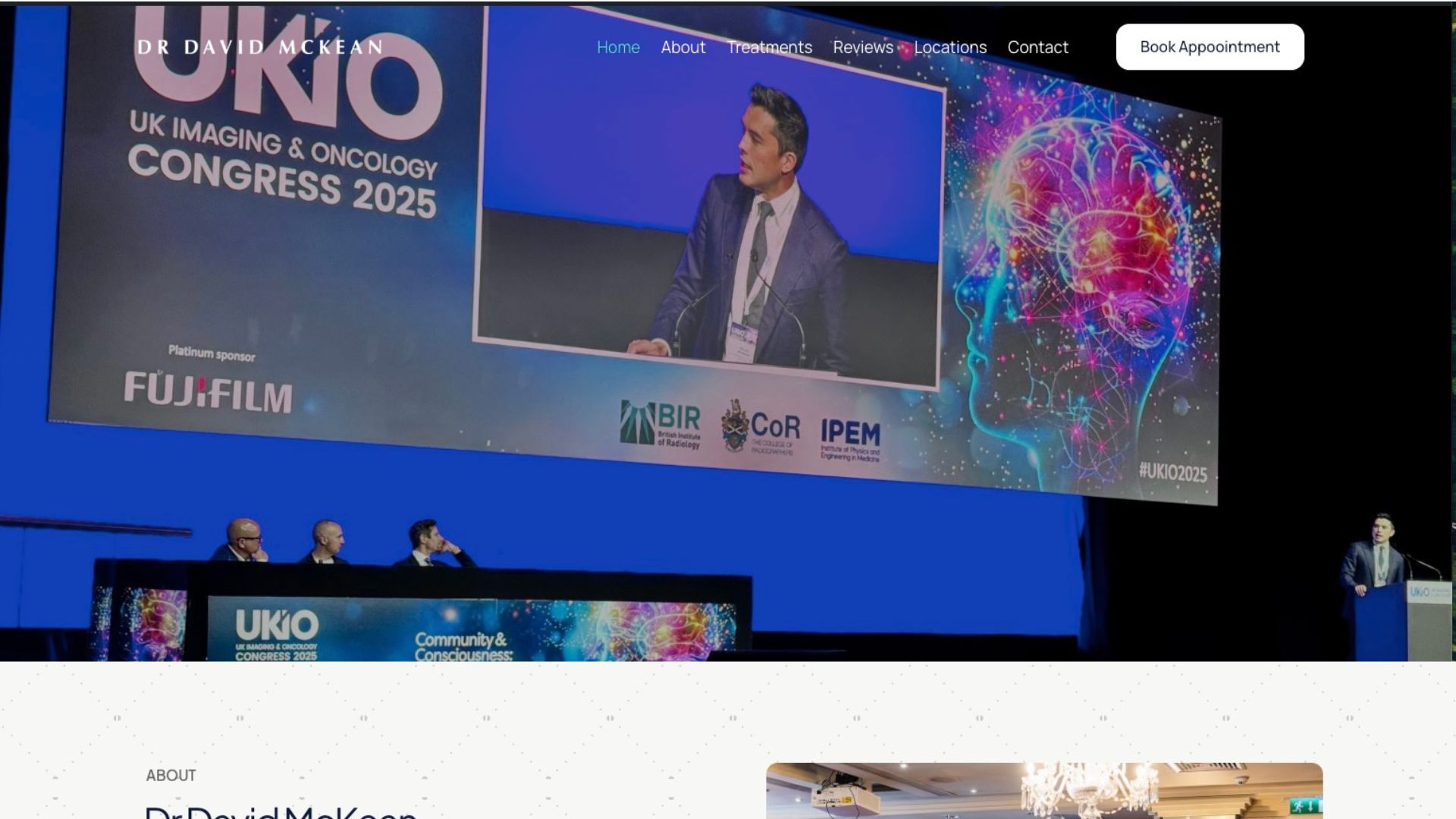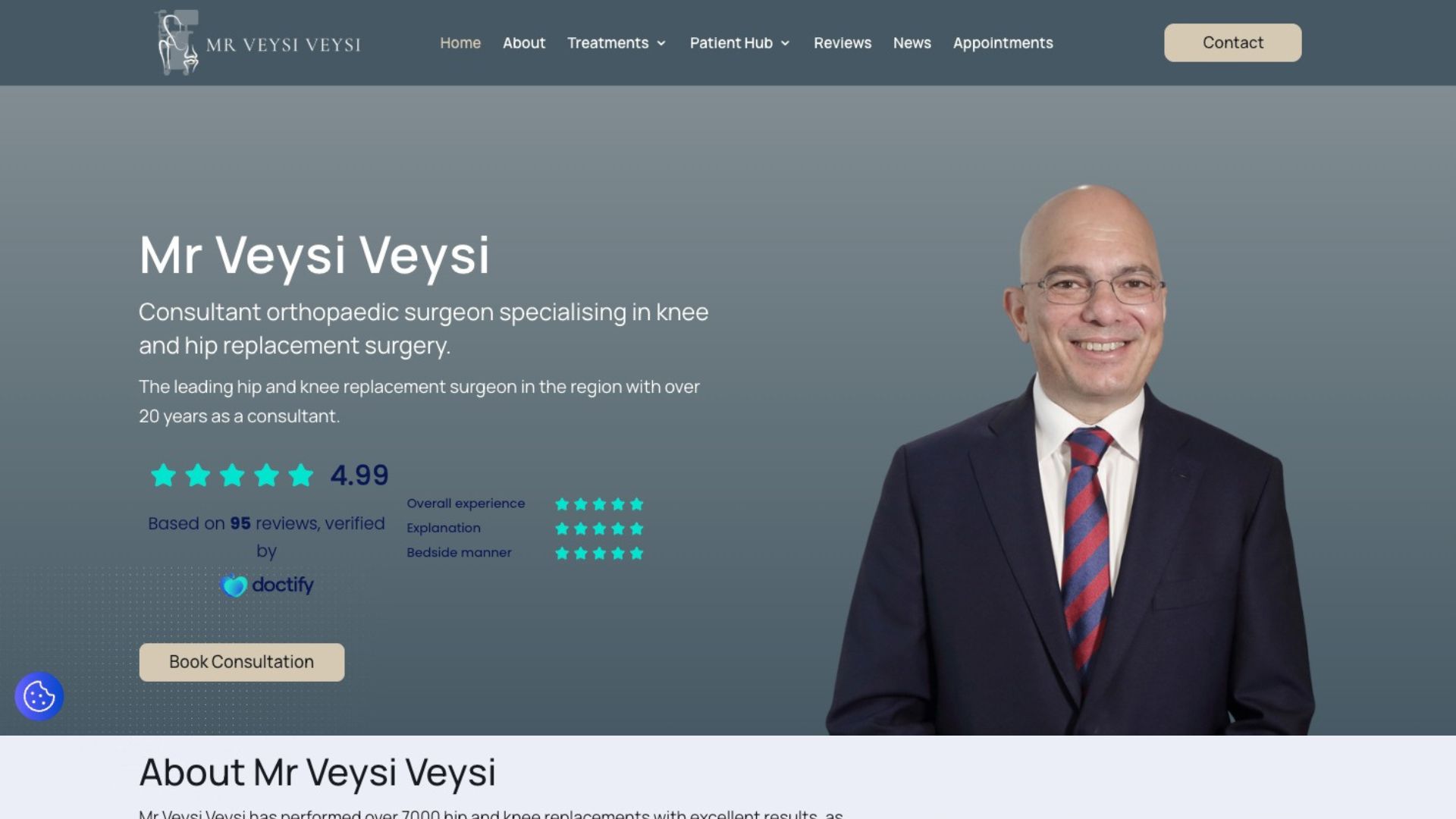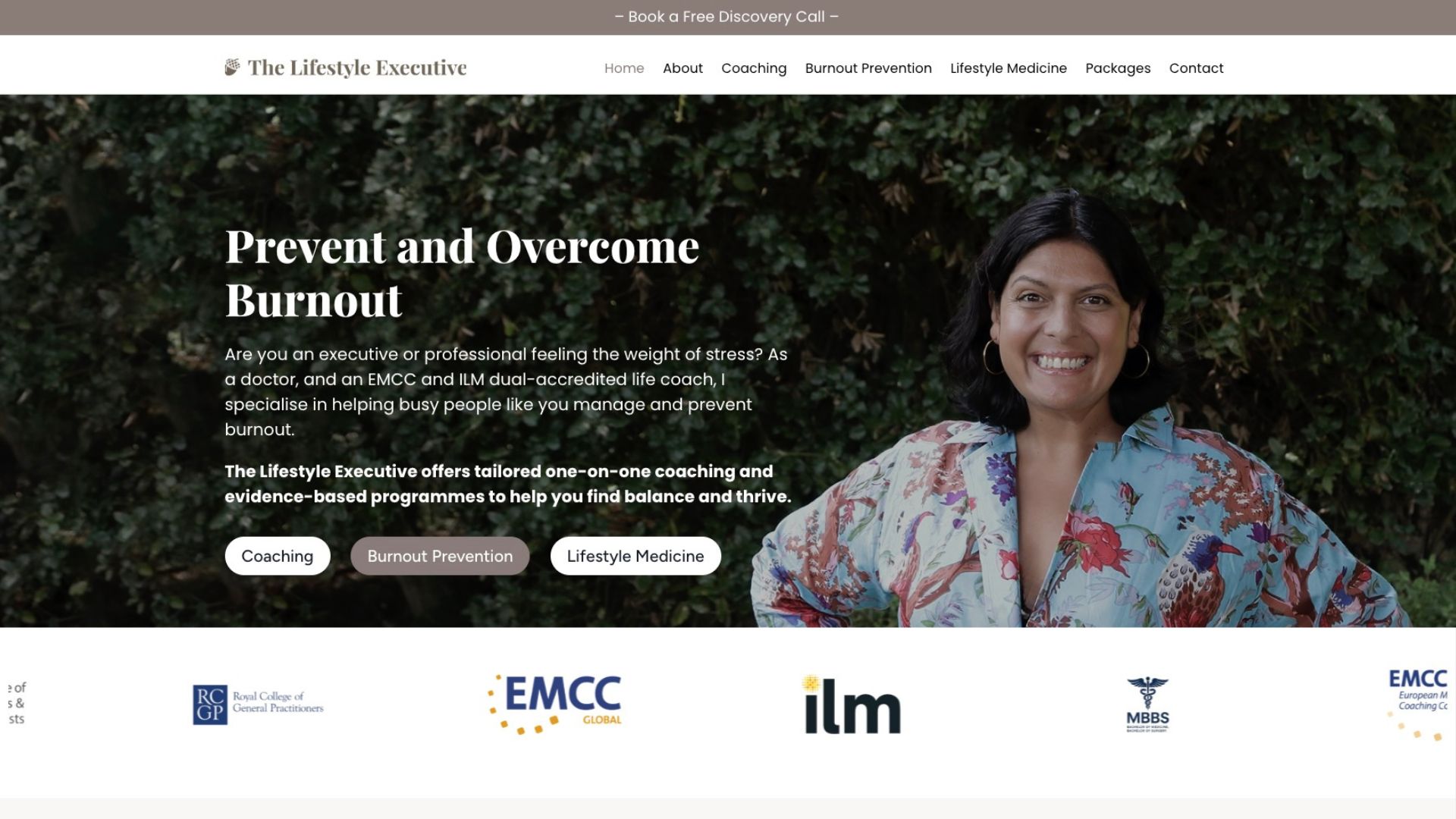A medical website is often the first point of contact between a patient and a practice. A well-designed site can build trust and provide a smooth user experience from the start. Conversely, a poorly designed one can lead to frustration and a loss of potential patients before they even reach your door.
Consider your website as a digital front door. It needs to be welcoming, easy to navigate and clearly organised. This is particularly important in the medical sector, where people are looking for reliable information and assurance about their health. As specialists in medical website design, we’re here to help.
Optimising your website for a good first impression
A patient’s initial visit to your site should feel straightforward and professional. The design should be clean and uncluttered, using a colour palette that is calming and easy on the eyes. Many healthcare sites use blue, green, and white tones because they suggest cleanliness and calm.
The user experience must be a top priority. Can visitors quickly find what they need, and is the navigation straightforward? Patients often visit a medical website to book an appointment, find contact details, or learn about the services you offer. You should make these actions simple to complete with clear calls to action.
Key elements for a successful medical website
Your professional website needs to be just that, professional. It also needs to meet the needs of your patients and potential patients. Keep these elements in mind:
1. Mobile-first design
A growing number of people access websites on their phones, so your site must be fully responsive. This means it adapts seamlessly to any screen size, providing a smooth experience for all users. A mobile-friendly site improves user experience and is a key factor in search engine rankings.
2. High-quality content
The content on your website must be accurate and easy to read. Use simple language and break up long sections with subheadings and bullet points. You should include information about your services and the qualifications of your staff. A blog can also be a useful way to provide helpful health information to your audience.
3. Secure and trustworthy
Patients trust their medical professionals with personal health information, and this trust must extend to your website. Use secure connections (HTTPS) and display privacy policies clearly. Showing accreditations and professional affiliations can also help to build confidence with visitors.
4. Fast loading speed
No one enjoys waiting for a page to load. Slow websites are frustrating for users and can harm your search engine ranking. Optimise your images and other media to ensure your site loads quickly, which provides a better user experience and encourages visitors to stay on your page for longer.
Contact the Web Surgery for your medical website design
Your medical website needs to include a blend of specialised knowledge and technical skill. At The Web Surgery, we understand the needs of the healthcare sector, helping you build a website that is not only visually appealing but also functional, secure, and optimised for search engines.
We provide a complete solution, from creating a responsive design and fast loading speeds to crafting engaging, informative content. Our success is shown in the results we achieve for our clients, and you can check out our work right here. Our case study examples include our project with Brady Medical Consultancy and also helping Dr Gayetri Associates achieve their digital goals. Contact us today to learn how we can transform your online presence.












